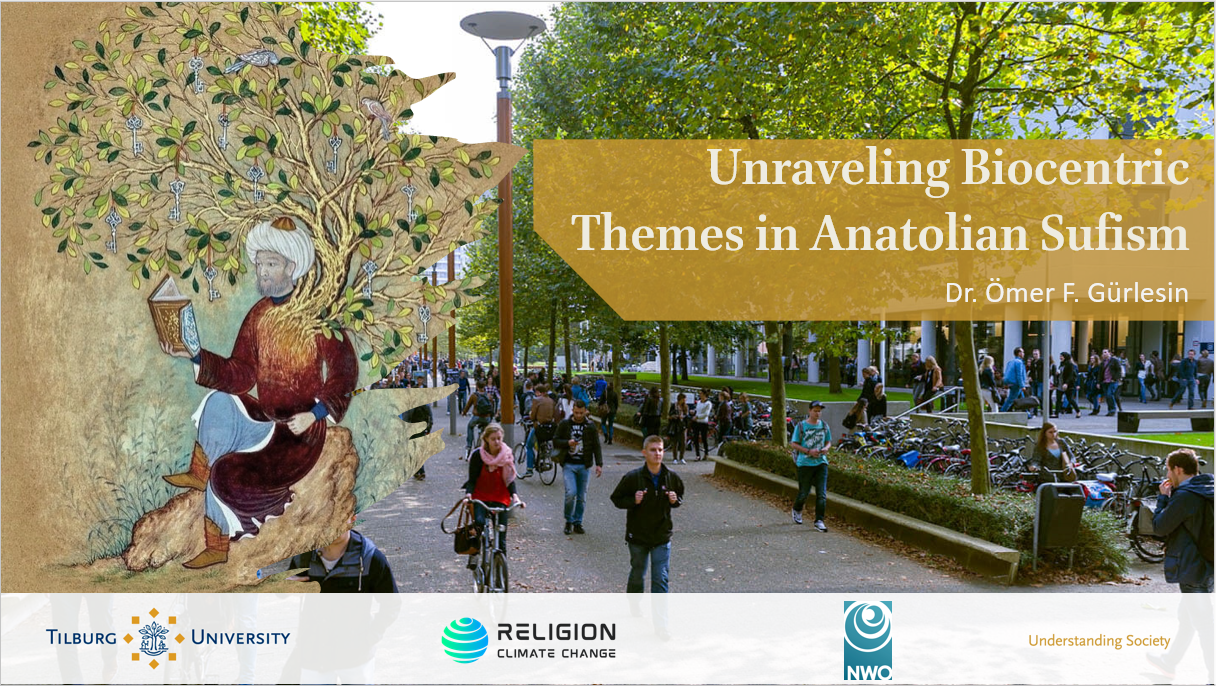Exploring Ecological Rituals and Spiritual Traditions: Insights from the 2024 Potsdam Conference
The seventh international conference "Myth, Ritual and Practice for the Age of Ecological Catastrophe," held from May 17 to May 19, 2024, at Universität Potsdam, Germany, aimed to explore the role of myth, ritual, and practice in addressing the environmental crisis. The conference examined whether religious and spiritual approaches can ground new ecological civilizations and discussed the potential of these approaches to be more persuasive than secular and rationalist critiques in fostering truly ecological societies.
Ömer F. Gürlesin attended in person, while Frank Bosman and Deborah de Koning presented their work online.
Frank Bosman and Deborah de Koning presented ‘Take my egg, eat it and don't forget me’ as a case study to illustrate the intersection of the religious domain with climate performance art in the Netherlands and the relevance of this intersection for climate mourning. They analyzed a fragment from the theatrical farewell ceremony ‘Remember Us’ (a production of Golden Hare) in which the Roman Catholic Eucharist is cited. Part of the performance is the offering of raisins (that symbolize the host) which the actor pronounces to be body parts of extinct species. The critical deviations of the pheno-performance (‘Remember Us’) from the arche-performance (the Roman Catholic Eucharist) illustrate the broadening of communitas of Christians from all times and places that is central to the Eucharist to an ecological inclusive community. The case study also shows the relevance of the use of existing practices (rituals), objects, and text within the field of meaning-making in the climate crisis and the inevitable anthropomorphizing of other species in this process.
Ömer F. Gürlesin's presentation examined biocentric themes in Anatolian Sufism. Gürlesin explored how this spiritual tradition informs environmental philosophy, highlighting its relevance to humanity's relationship with nature. Drawing from Ahmed Avni Konuk's commentary on Rumi's Masnavi, Gürlesin discussed the integration of anthropocentric, theocentric, and biocentric perspectives within Sufi teachings.
Gürlesin emphasized the importance of understanding these perspectives in fostering a sustainable relationship with the environment. He noted that while Sufi teachings can contribute positively to environmental efforts, they also pose risks if misinterpreted to justify environmental neglect. Konuk's commentary provides a nuanced exploration of human-nature relationships, where nature is seen as both a utility for humans and a manifestation of divine wisdom. This duality challenges conventional views and promotes a more inclusive environmental ethic.
The presentation concluded with a call for a balanced approach that aligns human actions with divine intentions, emphasizing the need for ethical, spiritual, and practical responses to contemporary environmental issues. Gürlesin's analysis underscores the potential of Anatolian Sufism to contribute to the discourse on environmental ethics, highlighting its relevance in addressing the ecological crisis.


